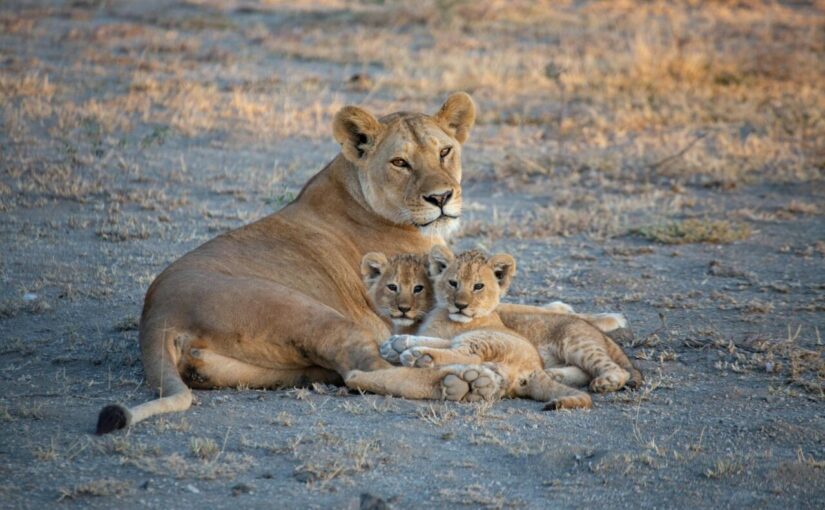Mariana Vale shares with us her epistemological perspective of emergency and crisis in environmental science and ecology in the fourth blog in this series based on the IGDC/YESI Webinar event ‘Emergencies, wellbeing and social justice in the Anthropocene.’
Mariana Vale’s research focuses on the conservation of biodiversity and ecosystem services in the tropics, with a focus on climate change and most recently, pandemic prevention. Mariana joined us in this webinar to discuss epistemological perspectives specifically in relation to emergency and crisis in environmental science and ecology.
Biodiversity crisis is clearly an emergency
I think we understand very well the biodiversity crisis; the number of lions in Africa, for instance, have dropped by 65%. Flying insects in Europe have dropped by 75%. Bluefin tuna by 95% and many species have become extinct.
The Intergovernmental Platform on biodiversity and ecosystem services estimate that about 1 million species might be at risk of extinction today due to human activity, so we might be reaching the sixth mass extinction due to human activities, and this is clearly an emergency. The scientific community has been calling attention to this emergency for decades, the Earth Summit in Rio was in 1992 and we haven’t progressed very much since.
First we focused on the beauty of nature and charismatic species, then we moved to a more utilitarian approach showing how biodiversity loss affects food security, human health, and climate stability. We have also proposed and evaluated solutions, showing clearly that they are more cost effective than dealing with the effects of biodiversity loss, so we have moved into this realm of cost effectiveness and economics.
For example, in the case of COVID19; my group have shown that the cost of preventing pandemics through environmental actions such as controlling deforestation and wildlife trafficking, for instance (which are a major source of spillover of pathogens from wildlife to people) costs less than 1% of the cost of emerging infectious diseases in general.
The science community are not being heard
So we have the evidence, but we are not being heard, why?
We hear that it is the fault of the scientists, as scientists don’t know how to communicate or are not interested in communicating outside of academia. Maybe it was the case in the past, but I don’t think that this is the case anymore. We’ve been actively searching for cost-effective solutions and communicating our findings.
From the policy perspective, why are we not being heard by policy makers? We often conclude that it is a problem of the timing; the timing of politics (typically a 4 or 5-year cycle) is very disentangled from the timing that we need to propose and implement the solutions to address this crisis.
There is also a concern about the general public, why is the general public not listening to this emergency? I have the feeling that we have too many crises that are overlapping; there are humanitarian crises, there are economic crises in many places, there’s the climate crisis, and then the biodiversity crisis becomes less of a priority.
Also, there is an excess of information that comes from conventional and social media, we are exposed all the time to very shocking news and images. There is a lot of misinformation as well, and people are becoming anaesthetised, so I wonder whether this emergency discourse is helpful or not.
Alternative to ‘emergency’ discourse
Ecologists are often told people are tired of hearing bad news: can you just provide some good news, examples of things that have worked? Of course, there are good examples of things that have worked, and we have moved forward in tackling the biodiversity crisis, but definitely not at the speed that is needed.
I personally tend to be positive, I think that we can address this crisis, otherwise I wouldn’t be here. I wouldn’t be working on this, I could do something else with my life!
I have a lot of faith in my students and what we do. So, the question is, how are we going to call the attention of society to address this crisis and more importantly, how are we going to provide the solutions and implement those solutions. I don’t have the answer to that, but I have the strong feeling that the change we need is not going to come from academia and it’s not going to come from the global north.
Checkout the full version of Mariana’s talk:
About the author

Mariana Vale is a professor at the Department of Ecology at the Federal University of Rio de Janeiro (UFRJ), Brazil.
She holds a PhD in Ecology from Duke University, USA; is a member of the United Nations Intergovernmental Panel on Climate Change (IPCC) and the International Coalition for Pandemic Prevention.
Her research focuses on the conservation of biodiversity and ecosystem services in the tropics, with a focus on climate change and most recently, pandemic prevention

